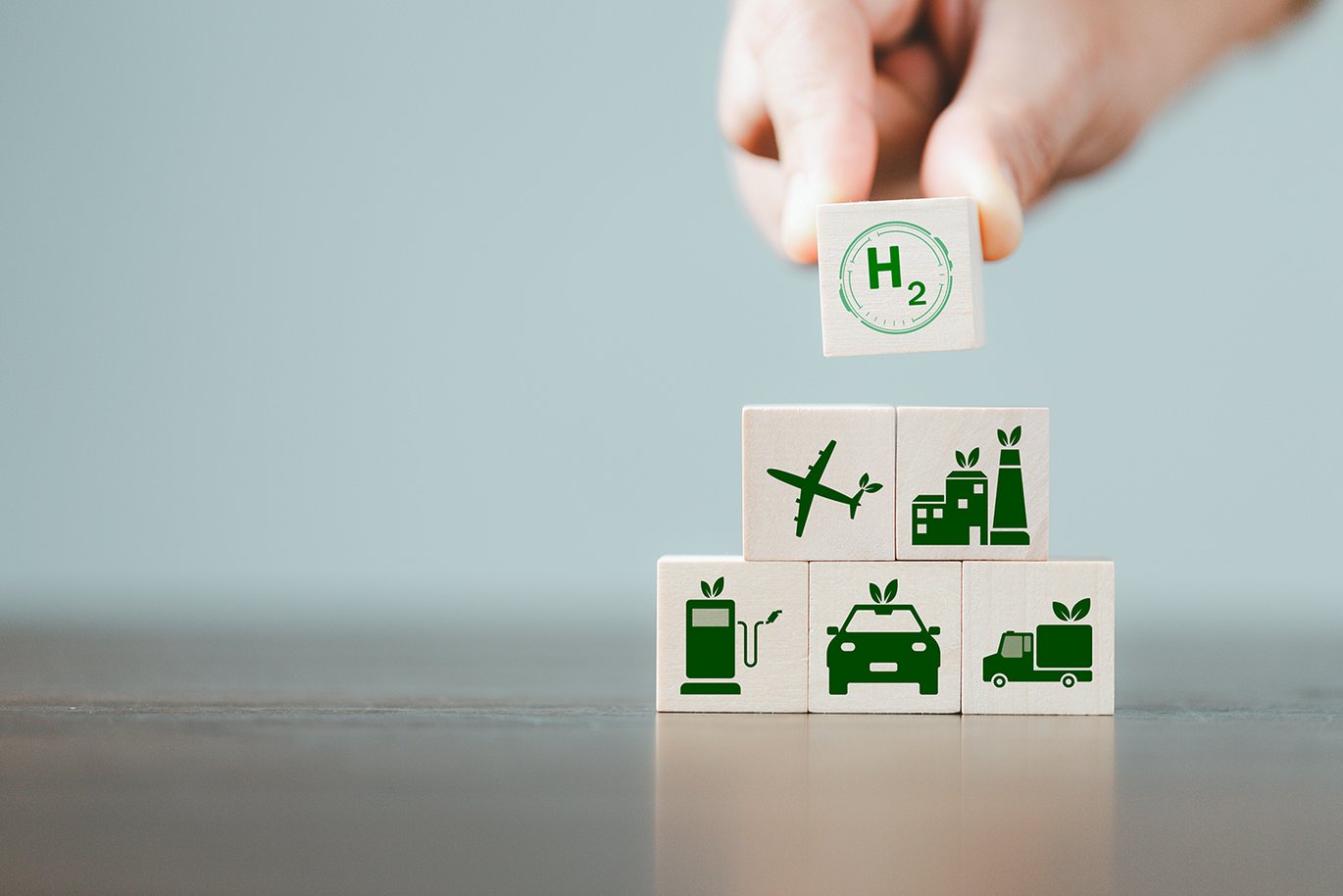Highly efficient electrodes will make green hydrogen even greener
Green hydrogen produced by electrolysis has shown great promise for the carbon-neutral society of the future and the green transition of Europe's energy systems. A new research project will top-tune the process and take Danish electrode technology to the forefront of development.

Hydrogen plays a key role in European ambitions for green energy transition and climate neutrality by 2050. Approximately three per cent of global carbon emissions derive from the production of grey hydrogen, which is extracted from natural gas. The usual alternative to this is green hydrogen formed by using electricity from renewable energy sources and water to produce hydrogen through alkaline electrolysis.
The Danish Technological Institute, Aarhus University and the tech company Advanced Surface Plating (ASP) have joined forces in a project aiming to optimise this process. The project is called LC-H2 and it is supported by a DKK 9.7 million grant (EUR 1.3 million) from Innovation Fund Denmark.
"The hydrogen industry is booming, and in this project we hope to develop the next generation of highly efficient electrodes to make the electrolysis process as energy-efficient as possible. There is huge potential, and the project will secure long-term Danish competitiveness in the hydrogen field. There is no doubt that the project is a milestone within alkaline electrolysis," says Lars Pleth Nielsen, CEO of ASP, who is heading the project.
The electrolysis process uses two electrodes, a cathode and an anode, which, via a direct current, split water molecules into hydrogen and oxygen. Modern hydrogen production uses highly developed, porous electrodes with the greatest possible surface area to optimise the reaction area and production volume.
Hydrogen and oxygen form bubbles in the water, which are basically the main product of the process, but which, through excessive formation, limit the efficiency of the process, as the bubbles create resistance to the chemical reaction on the electrode surfaces.
The LC-H2 project is based on ASP's existing electrode technologies, and combines them with high-resolution numerical simulations, tests and analyses, as well as neutron photography of hydrogen formation.
"We don’t know exactly what’s going on in the electrolysis cell during hydrogen formation. We know how much current we’re putting into the process and how much hydrogen we’re getting out, but we don’t know the details and we don’t know exactly which parameters we can adjust to optimise the process," says Assistant Professor Pourya Forooghi from the Department of Mechanical and Production Engineering at Aarhus University.
He continues:
"Therefore the project aims to describe hydrogen formation in the process and draw up a plan for how we can super-optimise the porous electrode material in respect of its transport properties for liquid, hydrogen and oxygen. We hope to be able to develop the next generation of electrodes so we can generate even greener hydrogen for an industry in rapid growth," he says.
Project partners are Advanced Surface Plating, the Danish Technological Institute and two departments at Aarhus University: the Department of Mechanical and Production Engineering and the Department of Biological and Chemical Engineering. The total project budget is DKK 13.9 million (EUR 1.9 million), and it will run over the next three years.
Facts
Innovation Fund investment: 9,.7 million DKK.
Overall budget: 13.9 million DKK.
Project duration: 3 years
Officiel title: Low-cost H2 production by high-performing alkaline water electrolysis (LC-H2)
Contact
Lars Pleth Nielsen
CEO, Advanced Surface Plating
mail: lpn@asp-hpro.com
Tel.: +4529425706
Assistant Professor Pourya Forooghi
Aarhus University, Department of Mechanical and Production Engineering
Mail: forooghi@mpe.au.dk
Tel.: +4593522303
